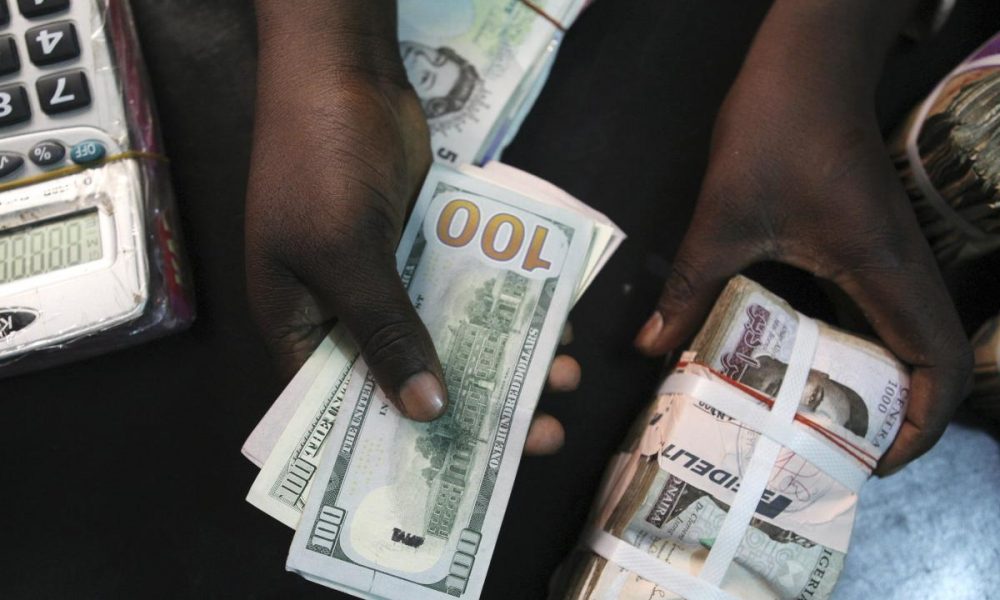
Thursday, 17 March 2022: This is the news about the Dollar to Naira rate at the official and black market exchange rate.
Read Naija News update on the official dollar rates as well as Black Market rates, Bureau De Change (BDC) rates, and CBN rates.
How Much Is Dollar To Naira Exchange Rate Today Official Rate?
The official rate today, Thursday, March 17, 2022, for $1 dollar to naira = ₦416.08/$1.
According to the data at the FMDQ Security Exchange where forex is traded officially, the exchange rate between the naira and the US dollar opened at ₦416.08/$1 on Thursday 17th, after it closed at ₦416.50 to a $1 on Wednesday, 16th March 2022.
Naija News reports that the dollar to naira exchange rate has maintained an average of N416.69 to a dollar since the beginning of the new year.
How much is a dollar to naira today in the black market?
The exchange rate for a dollar to naira at Lagos Parallel Market (Black Market) players buy a dollar for N575 and sell at N580 on Thursday, March 17th 2022, according to sources at Bureau De Change (BDC).
Please note that the Central Bank of Nigeria (CBN) does not recognize the parallel market (black market), as it has directed individuals who want to engage in Forex to approach their respective banks.
Trading at the official NAFEX window
The exchange rate between the naira and the US dollar opened at ₦416.08/$1 on 17th March, 2022 and closed at ₦416.67/$1. Showing a change of 0.04.
According to data from FMDQ, forward rate went as high as ₦453.25 and as low as ₦420.00.
Spot rate: The dollar sold to the naira as high as ₦444.00 and as low as ₦410.00.
A spot exchange rate is the current price level in the market to directly exchange one currency for another, for delivery on the earliest possible value date.
Nigeria Failed To Save $342m From Debt Service Suspension In 2021
The Federal Government of Nigeria failed to save $342.1m from January to December 2021 through the debt service suspension initiative, according to World Bank.
World Bank in a post on its website disclosed the loss in a brief on Debt Service Suspension Initiative.
The World Bank disclosed when different countries, including Nigeria, could have saved if creditors suspended payments on all principal and interests within a period of 12 months.
It gathered that Nigeria, though eligible, opted out of the initiative which could have seen it save 0.1 per cent of its Gross Domestic Product.
Nigeria despite being one of the largest World Bank borrowers are not covered by the Joint Bank-Fund Debt Sustainability Framework for Low-Income Countries.
World Bank in a document published last year April, ‘the Debt Report 2021 Edition II’ provided a justification for countries that were not yet beneficiaries of the DSSI.
This article was originally published on Nigeria News


